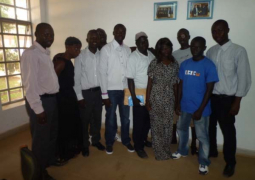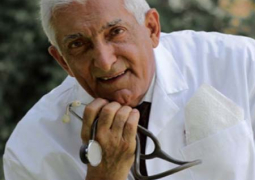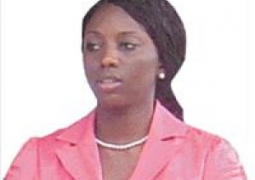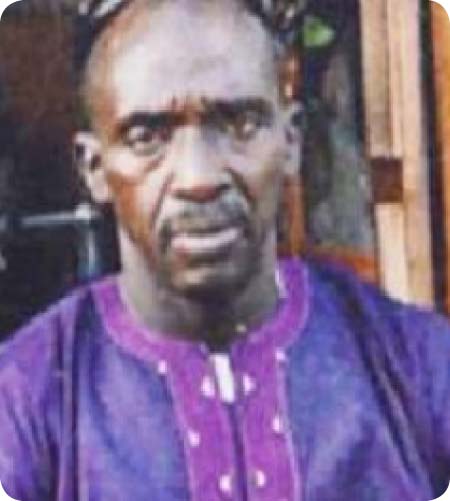
In his testimony, the witness said that he lives at Lamin village and is a civil servant, adding that he recognized the accused person.
He testified that he could recall what happened on 20 November 2013, adding that on this day, he was on duty in his office in Banjul.
Mr Manneh told the court that on 20 November 2013, the accused was cautioned by him, witnessed by an independent person, one Foday Sanyang.
He said he told the accused that he need not say anything, but if he did so, it would be used as evidence against him.
He adduced that the accused was cautioned on sedition, adding that they recorded his statements for him after the cautionary wording was read to him.
Mr Manneh added that after reading the cautionary statement to the accused, Mass Kah admitted liability.
He further testified that they invited an independent witness, and read over the statement to the accused, which was translated in Wollof, adding that the accused accepted what was recorded.
Prosecutor 3560 Colley, who represented the IGP, asked the witness what he, the independent witness and the accused did after the cautionary statement was read to the accused.
The accused, the independent witness and himself signed the statement, Manneh replied.
The prosecutor asked whether he would be able to identify the cautionary and voluntary statements, which he identified.
Prosecutor Colley applied to tender the said statements.
Defence lawyer Lamin S. Camara had no objection to the application made by the prosecutor, and the documents were admitted by the court and marked as exhibits.
Under cross-examination, the defence counsel asked the witness: “Mr Manneh, in what language was the accused speaking to you when you recorded the statement.”
“In Wollof language,” the witness said.
“Have a look at the statement. Is there any indication that the accused was speaking to you in Wollof?” asked the defence counsel.
“Yes,” answered Mr Maneh.
“Where is it in the statement?” counsel enquired.
“It is an oversighted. It is not there,” he answered.
“Have a look at the other statement. Is it correct that it was written by you?” asked counsel.
“Yes,” the witness said.
“Look at each of the pages in the statement and show the court where it was recorded by you that the statement was translated into Wollof to the accused,” the defence counsel stated.
Prosecutor Colley rose and raised an objection.
He said there was no column on the document for the accused to say that he read over the narration of the statement in Wollof. No column was provided, he argued.
Counsel Camara rose and said that he did not think that the objection was based on any law.
He further argued that what the prosecutor was telling the court was that if there was no column provided, it should not be in the document.
He said the objection was untenable.
At this juncture, he quoted what the witness said in connection to the recording of the statement.
He urged the court to ask the witness to answer the question, since he knew that it was a requirement to provide the column.
“Whether the form has the column or not, it has to be there,” Lawyer Camara argued, and urged the court to overrule the objection.
Magistrate Janneh ruled in favour of the defence, and asked the witness to answer the question.
Counsel Camara repeated the question.
“It is indicated in the statement,” said the witness.
“Can you tell the court in which language you cautioned the accused?” asked counsel.
“It is indicated in the statement,” the witness repeated.
“Is it stated in the column provided?” asked counsel.
“It is not stated in the statement,” said the witness.
“Do you know Foday Sanyang?” asked counsel.
“I know him,” answered Mr Manneh.
“Where does he work?” Camara enquired.
“At the Justice ministry,” said Manneh.
“Is he literate?” asked Camara.
“I don’t know,” replied the witness.
“What tribe is he?’ Camara questioned.
“He is a Mandinka,” answered Manneh.
“Does he speak Wollof?” asked Camara.
“Yes,” Manneh replied.
At this juncture, the prosecutor applied for an adjournment to call his last witness.
His application was granted and the case was adjourned to 27 January 2014.
Read Other Articles In Article (Archive)
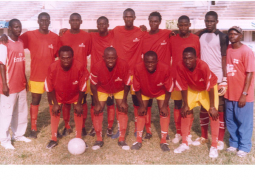
Brufut United FC to clash with Gunjur FC in W/Region 3rd Division Qualifiers
Sep 24, 2010, 12:43 PM
